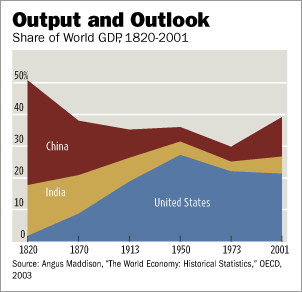Here is a post on Marginal Revolution that discusses a talk by Harvard economist Caroline Hoxby. The policy paper linked from that post discusses the 3 elements that Dr. Hoxby thinks must exist for school choice to work:
- Supply flexibility, which means that schools should have the ability to open where there is demand for them, expand with increased demand and contract with reduced demandNow being at a private school, you guys have at least some idea of the benefit of competition between schools. What do you think of the overall idea as a replacement for the current public school system? Let's get a discussion going of some of the key issues involved.
- Money should follow students, which means that funding policies must be designed so that schools that are in demand have the funds to expand and those that are not in demand lose funds and must contract; and
- Independent management of schools, which means that schools must be free to innovate in a range of areas, including pedagogy, teacher pay, budget allocation, and the way the school is organised.
(Source: Marginal Revolution)

